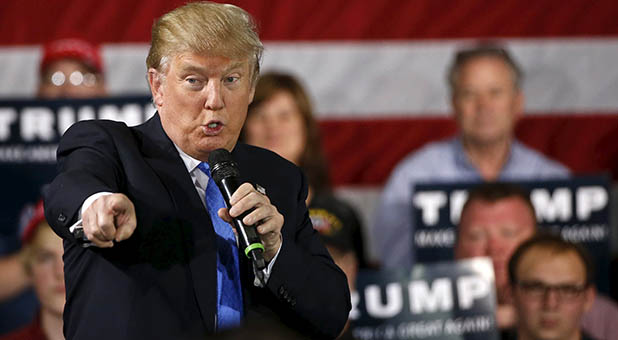Ever since he took the political world by storm, the liberal media, Republican Party establishment, and even evangelical leaders have tried to explain how Donald Trump “happened.”
Now a pair of researchers have put out their own theory, which they say is backed by conclusive data. Basically, his support is largely the result of racism.
They argue their position in an article titled “Racial Resentment and the Rise of Donald Trump,” which was published by the liberal magazine Salon. In it, San Francisco State University political science professor Jason McDaniel and liberal think tank Demos research associate Sean McElwee make their case that racism fuels the Trump campaign.
“What explains the rise of Donald Trump?” he asked at the onset.
“There are many potential answers, but over the course of the campaign two competing theories have emerged. The first holds that Trump’s message appeals to working-class white voters who’ve seen their incomes remain stagnant, manufacturing jobs vanish and inequality skyrocket in recent decades. The root cause of Trumpism, in this view, is economic insecurity. The other, blunter theory is that Trump’s fans flock to him for the same reason elites view him as an existential threat to American democracy: his open appeals to racist, white nationalist sentiment.
“Both of these theories have some truth to them. But polling data suggests that racial attitudes, including racial resentment and explicit racial stereotypes, are the more important factor. What’s more, the evidence presented below shows that racial attitudes uniquely predict support for Trump, compared to the other Republican candidates.”
They base their findings on a recent presidential preference survey that included “a number of questions designed to measure racial animus,” such as:
- it asked respondents how important their race is to their identity; and
- it asked respondents how well the words “lazy” and “violent” describe black people, Muslims and Hispanics.
The survey also included several questions meant to measure “racial resentment,” a concept developed in the late 1990s meant to capture “less overt, but still real,” forms of racism.
“The concept is particularly useful for measuring racism these days, when most racism tends to ‘colorblind’ or ‘dog-whistle’ racism,” the researchers wrote. “That is, racist attitudes that are expressed in a way that is seemingly neutral, but still animates racial anger.”
They said that in analyzing the survey data, they “threw in a number of statistical controls” in an effort to “isolate the extent to which respondents’ views on race affected their views on the election, independent from other factors related to government policies and political attitudes.” They found a correlation between “racial animus” and the support for two candidates: Trump and U.S. Sen. Marco Rubio.
“Increased levels of overt racial stereotyping among white respondents—as measured by belief that black people, Muslims, and Hispanics are ‘lazy’ or ‘violent’—strongly increases support for Trump, even after controlling for other factors,” they wrote. “Among white respondents, support for Rubio decreases significantly with belief in racial stereotypes.”
The researchers claim this isn’t new to Republican Party presidential politics.
“From Reagan’s talk of ‘welfare queens’ to Rick Santorum saying ‘I don’t want to make black people’s lives better by giving them somebody else’s money,’ many GOP leaders have used racially charged rhetoric to undermine support for the social safety net,” they wrote. “The result has been to empower a demagogue like Trump …
“The GOP certainly has not done itself any favors by pushing for highly unpopular policies that have benefited their donor class while showing little benefit to the wider population. While we accept that all of these factors help explain Trump support, we find that racism is the main driver of support for Trump. The model presented here accounts for all of these attitudes and still finds an incredibly strong relationship between racism and support for Trump. The centrality of racism to the Trump phenomenon should not be obscured.”







































